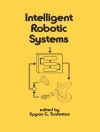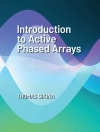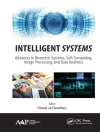The teenage audience born in the 21st century, some now entering adulthood, arrived into the world at a time when the internet was already a reality. Part of this generation, urban and connected through mobile devices, grew up in an environment increasingly mediated by blogs, videos, games, social networking sites, fanfics, series, songs, books, radio, advertising, arts, comics, television, newspapers, films… in short, the different ‘texts’ that continue contributing to our ‘apprehension’ of everyday life. In this second volume of the Movements series, the professor and researcher Sérgio Branco focuses on the transformations brought about by digital connection networks and the internet. Besides the effect of the multiple voices entering the debate, Branco addresses ‘the supremacy of video and audio’, ‘fake news, post-truth and alternative facts’, and the relationship between ‘personal data, control and privacy’ In the author’s words: ‘The telephone took 75 years to reach 50 million users. Cars needed 62 years to reach the same mark. And then 38 years for radio, fourteen for television, three and a half years for Facebook and only 35 days for the Angry Birds game. Speed is the hallmark of our time and that makes all the difference. When it takes 75 years for 50 million people to have a phone, all uncertainties are gradually understood, debated, systematized and resolved along the way. But when you reach the same number of people in months or days, there is a huge chance that various conflicts will arise, with some being closely followed by others before they are resolved’. Published in Portuguese and English exclusively in e-book format, the Movements series is edited by the writer Tiago Ferro.
लेखक के बारे में
Sérgio Branco is co-founder and director of the Rio de Janeiro Institute of Technology and Society (ITS Rio). He has doctoral and master’s degrees in civil law from Rio de Janeiro State University (Uerj) and a specialization degree in intellectual property from the Pontifical Catholic University of Rio de Janeiro (PUC-Rio). He has published the books Memória e esquecimento na internet [Memory and Forgetting on the Internet] (Arquipélago, 2017), Direitos autorais na internet e o uso de obras alheias [Copyright on the Internet and the Use of Third Party Work] (Lumen Juris, 2007), O domínio público no direito autoral brasileiro [Public Domain in Brazilian Copyright Legislation] (Lumen Juris, 2011) and O que é Creative Commons: novos modelos de direito autoral em um mundo mais criativo [Creative Commons: New copyright models in a more creative world] (FGV, 2013).












